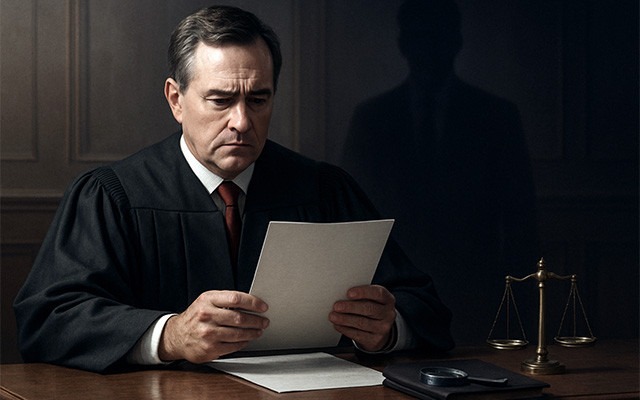
Declarations of integrity for judges and others: BCU approves conclusions on draft laws

Under the guise of restoring trust in the judiciary, repressive mechanisms of control over it may be introduced. This directly contradicts international experience and may lead to the degradation of the Ukrainian justice system.
On July 24, the Bar Council of Ukraine, at its meeting, approved conclusions on draft laws currently under consideration by the Verkhovna Rada:
- No. 13165 of 09.04.2025 «On amendments to the Law of Ukraine «On the judicial system and status of judges» and certain laws of Ukraine regarding the improvement of procedures for submitting and verifying declarations of integrity of judges»;
- No. 13165-1 of 23.04.2025 «On amendments to the Law of Ukraine «On the judicial system and status of judges» and certain laws of Ukraine regarding the improvement of procedures for submitting and verifying declarations of integrity of judges»;
- No. 13165-2 dated 25 April 2025 «On amendments to the Law of Ukraine «On the judicial system and status of judges» and certain laws of Ukraine regarding the improvement of declarations of integrity of judges and family ties of judges».
Advocates noted that the discussion of these draft laws covers not only issues of the judicial system and integrity of judges, but also concerns guarantees of legal protection, accountability procedures, access to justice, and the professional activities of advocates. Therefore, the participation of the advocacy community in these consultations is of fundamental importance.
In the opinion of the BCU, certain legislative innovations proposed in the drafts raise serious concerns about their compatibility with international and European standards of justice, in particular with the established practice of the European Court of Human Rights.
In particular, comments were made on the unjustified introduction of temporary suspension in disciplinary proceedings, the controversial attempt to classify disciplinary offences, and the requirement for judicial decisions to be substantiated as a criterion for disciplinary liability. The BCU criticized the introduction of financial penalties as a means of exerting pressure on judges and the expansion of the circle of initiators of disciplinary proceedings.
Advocates noted the problematic reduction of the quorum requirements for the HQC, the weakening of collegial decision-making, and highlighted the risks to the quality of the judiciary.
The problems of duplication of judge evaluation procedures and limited judicial control over the decisions of the High Qualification Commission of Judges are being investigated. As for the commission itself, according to the advocacy institute, the crisis is caused by a fundamental conflict of interest, whereby the High Council of Justice appoints members of the High Qualification Commission, then considers disciplinary cases against them, approves the results of competitions and may participate in competitions organised by the High Qualification Commission. The commission's behind-the-scenes control threatens the independence of the judicial system, necessitating a radical change in the model for forming the HQCJ.
The conclusion provides a detailed analysis of systemic shortcomings in the formation and activities of the Public integrity council and proposes ways to reform it. The legislature is consistently implementing the principle of a gradual transition of judicial institutions to a national model of formation with a clearly defined list of authorized entities, while the HRC continues to function under the direct influence of international donors through artificial restrictions on the right to participate exclusively to civil society organizations that are recipients of international technical assistance. This leads to the professionalization of civic activism, with members of the HRC becoming professional civic activists who exist thanks to donor financial support. Such a system effectively turns «public control» into a paid professional activity, creating an obvious conflict of interest.
Separately, the advocacy self-government body drew attention to the provisions of draft laws No. 13137 and No. 13137-1, which contain provisions directly related to the advocacy and legal status of lawyers, in particular in the context of disciplinary mechanisms and possible restrictions on professional activities.
Based on its analysis of the existing problems, the BCU concluded that trust in the justice system must be restored not through repressive mechanisms that undermine the foundations of the rule of law, but through systemic reforms: increasing the transparency of judicial procedures, introducing modern standards for the selection of judges, and creating an effective system of disciplinary responsibility with full respect for all procedural guarantees and principles of fair trial.
The BCU's conclusion on draft laws to improve the procedures for submitting and verifying judges' integrity declarations can be viewed at link.
© 2025 Unba.org.ua Всі права захищені
"Національна Асоціація Адвокатів України". Передрук та інше використання матеріалів, що розміщені на даному веб-сайті дозволяється за умови посилання на джерело. Інтернет-видання та засоби масової інформації можуть використовувати матеріали сайту, розміщувати відео з офіційного веб-сайту Національної Асоціації Адвокатів України на власних веб-сторінках, за умови гіперпосилання на офіційний веб-сайт Національної Асоціації Адвокатів України. Заборонено передрук та використання матеріалів, у яких міститься посилання на інші інтернет-видання та засоби масової інформації. Матеріали позначені міткою "Реклама", публікуються на правах реклами.